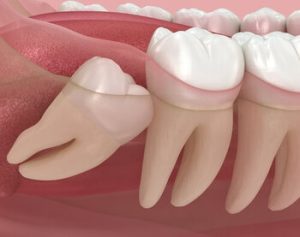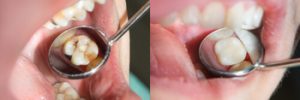Deciding to have your wisdom teeth removed often comes with a mix of questions and emotions. Some people feel uncertain, others just want to know how it will change things day to day. Whether you’re preparing for the appointment or managing life afterwards, it’s helpful to know what the overall experience might involve. Every step from start to finish influences comfort, healing, and peace of mind. So what really happens before and after wisdom teeth removal? Let’s walk through this journey in a way that brings clarity and confidence to your decision.
What Are Wisdom Teeth and Why Do They Need Removal?
Wisdom teeth often raise questions for many people, especially when they begin to cause discomfort or crowd other teeth. Understanding their impact can help you decide when it might be time to explore removal with your dentist.
Why Do We Even Have Wisdom Teeth?
Wisdom teeth are the third set of molars that usually emerge during late adolescence or early adulthood. While not everyone develops all four wisdom teeth, many people do, and their arrival can vary. These teeth once helped early humans grind down tough foods, but changes in diet and jaw structure over time have made them less necessary. Today, they often lack the space to grow smoothly, especially in smaller jaws. As a result, they tend to push against existing teeth or erupt at an awkward angle.
What Makes Impacted Wisdom Teeth a Concern?
 When there isn’t enough room in the jaw, wisdom teeth can remain trapped beneath the gums or only partially break through. These are known as impacted wisdom teeth, and they can cause a range of problems. Inflammation around the area is common, and infections may develop in the surrounding tissue. If a tooth pushes sideways, it may affect the alignment of nearby teeth or press into the bone. This pressure can result in discomfort that gradually increases over time.
When there isn’t enough room in the jaw, wisdom teeth can remain trapped beneath the gums or only partially break through. These are known as impacted wisdom teeth, and they can cause a range of problems. Inflammation around the area is common, and infections may develop in the surrounding tissue. If a tooth pushes sideways, it may affect the alignment of nearby teeth or press into the bone. This pressure can result in discomfort that gradually increases over time.
How They Affect the Rest of Your Smile
Wisdom teeth don’t just sit quietly at the back of the mouth. They can interfere with the position of other teeth, undoing previous dental work or causing general crowding. In some cases, they may grow so close to other teeth that cleaning the area becomes difficult. This increases the risk of food trapping, which can cause tooth decay and gum inflammation. Dentists often monitor how many wisdom teeth are present and assess their positioning through regular check-ups and X-rays.
When Pain Becomes Too Much to Ignore
It’s not unusual to feel occasional discomfort as wisdom teeth start to erupt, but ongoing or severe pain is a sign that something isn’t right. Pain may spread from the back of the jaw and even radiate to the ear or throat. Mandibular wisdom teeth, which develop in the lower jaw, often cause pressure that affects chewing or jaw movement. Inflammation or swelling can also lead to difficulty opening the mouth fully. Ignoring pain for too long may allow complications to progress, leading to more involved treatment later.
Preventing Further Complications Early
Early removal is often recommended when issues are detected, even if they haven’t caused discomfort yet. Dentists sometimes suggest removal before the roots fully develop, as it can help reduce the risk of a blood clot not forming correctly after extraction. Leaving problematic wisdom teeth in place may increase the chance of infection or damage to nearby teeth. Taking action before problems escalate helps protect the long-term health of your mouth and preserves the alignment of your smile.
What Is the Process for Removing Wisdom Teeth?
Preparing to have your wisdom teeth removed can feel daunting without knowing what to expect. Learning how the procedure is carried out helps you feel more in control and ready for the experience ahead.
The Initial Assessment Stage
Before starting the wisdom teeth removal process, your dentist conducts a full examination of your mouth. This typically includes a set of dental X-rays to assess the angle, depth, and positioning of each wisdom tooth. The location of nerves, sinus cavities, and surrounding teeth is carefully reviewed to minimise risks. Based on what they find, the dentist outlines whether a straightforward removal or a more detailed approach is needed. You may be referred for wisdom teeth surgery if the teeth are impacted or positioned awkwardly.
Preparing for the Procedure
Once your treatment plan is confirmed, the dentist will explain how the teeth removal procedure will be performed. This includes a discussion about sedation options, which may range from local anaesthesia to general anaesthesia, depending on the complexity. You’ll be asked to follow pre-surgery instructions, which may include fasting or adjusting medications. The goal is to create a smooth experience on the day of surgery. Clear communication about your health and comfort preferences helps ensure the right method is chosen for your situation.
Steps During the Extraction
The wisdom tooth extraction process begins once the anaesthetic takes effect. The dentist starts by making a small incision in the gum if the tooth hasn’t fully emerged. In some cases, a portion of the bone around the tooth may be gently removed to allow better access. The tooth may be divided into smaller sections to make it easier to remove. This approach helps reduce pressure on surrounding tissues. After the tooth is taken out, the area is cleaned and prepared for closure.
Finalising the Procedure
After the removal of wisdom teeth, stitches are often applied to assist in the proper healing of the gum tissue. In many cases, these stitches dissolve on their own over time. A gauze is placed over the site to support clot formation and control bleeding. The dental team will monitor you briefly to ensure you feel well enough to go home. Knowing each step in the wisdom tooth extraction procedure helps reduce anxiety and prepares you for a smoother visit.
How Do You Care for Your Mouth After Wisdom Teeth Removal?
The days following wisdom teeth removal are important for healing and preventing complications. With the right care, you can support recovery and reduce the risk of setbacks along the way.
Focus on Rest and Recovery Early On
 In the first 24 hours, your main priority should be rest. Try to limit talking and avoid any unnecessary jaw movement during this period. Keep your head slightly elevated while lying down to help reduce swelling. Avoid physical activity, as it may increase bleeding or discomfort at the extraction site. Letting your body settle and heal naturally during this stage makes a significant difference in how quickly you bounce back.
In the first 24 hours, your main priority should be rest. Try to limit talking and avoid any unnecessary jaw movement during this period. Keep your head slightly elevated while lying down to help reduce swelling. Avoid physical activity, as it may increase bleeding or discomfort at the extraction site. Letting your body settle and heal naturally during this stage makes a significant difference in how quickly you bounce back.
Keep the Area Clean Without Agitation
Oral hygiene matters after the procedure, but you’ll need to adjust your approach. Avoid brushing near the site for the first day. After 24 hours, rinse gently with a saltwater solution to help cleanse the area without disturbing the clot. Use a soft toothbrush for the rest of your mouth, and avoid mouthwashes that contain alcohol, as these may irritate sensitive tissue. Keeping the area clean without overdoing it helps support gradual healing.
Monitor What You Eat and Drink
Choose foods that are easy to swallow without straining your jaw. Soft choices like mashed potatoes, yoghurt, or scrambled eggs are usually well tolerated. Stay away from hot drinks and foods on the first day, as well as anything crunchy or spicy that could irritate the site. Use a spoon instead of a straw to prevent suction, which can dislodge the healing clot. As comfort improves, you can slowly introduce more texture into your meals.
Watch for Signs That Need Attention
Some discomfort is expected, but if swelling worsens after a few days or you notice foul odour, pus, or a persistent bad taste, it may indicate a problem. Keep track of any fever or severe discomfort that doesn’t respond to the medication provided. Follow-up with your dentist if anything seems unusual or healing feels delayed. Prompt attention to early signs of concern helps prevent further issues and ensures a smoother recovery overall.
How Are Costs Determined for Wisdom Teeth Extraction?
Number and Position of Teeth
The total cost often depends on how many wisdom teeth need to be removed and their placement in the mouth. Upper teeth are usually easier to extract, while lower ones, especially impacted molars, may require more time and care.
Complexity of the Extraction
Simple extractions typically cost less than surgical ones. If a tooth is partially erupted, positioned sideways, or trapped in the jaw, the procedure becomes more involved, which may influence the overall price.
Type of Anaesthesia Used
Local anaesthesia is usually included in basic fees, but if sedation or general anaesthesia is required, this adds to the cost. The level of comfort you need during the procedure will affect the final amount.
Qualifications and Experience
The experience of the dental practitioner may play a role in pricing. More experienced teams often use advanced equipment and offer efficient treatment, which might slightly raise the cost but improve the experience. Clinics with experienced teams may also be better equipped to handle unexpected complications during the procedure, offering added reassurance throughout the process.
Location and Clinic Fees
Where the treatment is carried out can also impact the cost. Clinics in metropolitan areas may charge more due to higher overheads, while regional locations might be more affordable. It’s always helpful to ask for a detailed estimate upfront.
Start Strong and Finish Well with Expert Help
 Taking the time to prepare before your wisdom teeth removal and knowing what to expect afterwards can make a real difference in your overall comfort. From planning your meals to recognising the signs of healthy healing, each stage plays a role in making recovery easier. If you’re unsure about any part of the process or simply want guidance tailored to your needs, our clinic is here to support you from start to finish. We aim to make each experience smooth, informative, and as comfortable as possible.
Taking the time to prepare before your wisdom teeth removal and knowing what to expect afterwards can make a real difference in your overall comfort. From planning your meals to recognising the signs of healthy healing, each stage plays a role in making recovery easier. If you’re unsure about any part of the process or simply want guidance tailored to your needs, our clinic is here to support you from start to finish. We aim to make each experience smooth, informative, and as comfortable as possible.
Whether you are dealing with discomfort, considering the procedure, or managing recovery, you don’t have to figure it out alone. Our team will walk you through what to expect before, during, and after wisdom teeth removal surgery to ease any concerns. Every patient is different, so having personalised support helps you feel more confident with each decision. No matter what stage you’re at, we’re here to provide clear answers and gentle care. To book your appointment or speak with our team, call us today on (02) 8806 3799. We’ll help you feel informed, supported, and confident every step of the way.
Note: Any surgical or invasive procedure carries risks. Before proceeding, you should seek a second opinion from an appropriately qualified health practitioner.
References
https://www.healthdirect.gov.au/surgery/removing-wisdom-teeth
https://www.dentalhealth.org/wisdom-teeth









